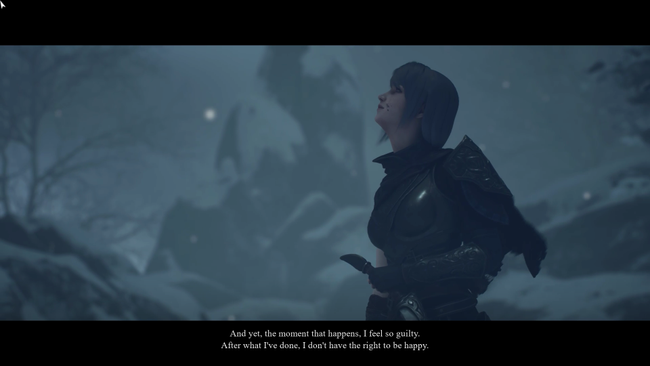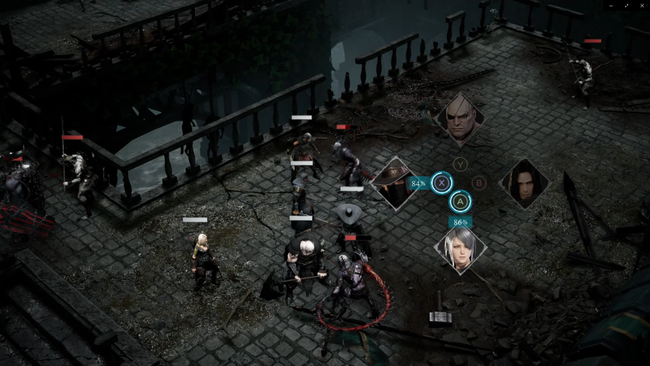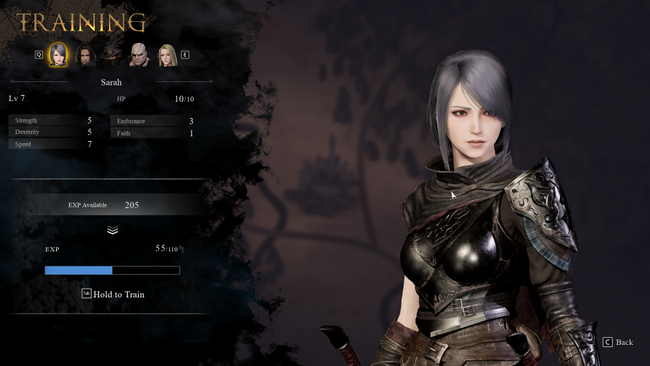
Redemption Reapers Review
Had I not played Ender Lilies: Quietus of the Knights, hearing that Binary Haze Interactive and Adglobe were working on a tactical RPG named Redemption Reapers would mean little to me. But Ender Lilies is fantastic, and the pedigree behind the studio's newest title also had me quite interested in checking it out.
While Ender Lilies was a sidescrolling RPG, Redemption Reapers is a different type of game altogether, going for the grid-based strategy RPG sub-genre instead. Importantly, one of the key designers on Redemption Reapers is Masayuki Horikawa, a strategy RPG veteran who has previously worked on numerous Fire Emblem series titles including Fates - Conquest, Path of Radiance, and Thracia 776. It also boasts a scenario penned by Metal Gear Solid writer Tomokazu Fukushima, and a musical score helmed by Rei Kondoh.
That said, in many ways, Redemption Reapers is not really like a Fire Emblem game, especially not a modern Fire Emblem game. It shares some DNA & components, of course, but ultimately it plays significantly differently; this isn't simply a clone. In fact, I would have a difficult time recommending Redemption Reapers to the average Fire Emblem fan, because in many ways it is clearly trying to be its own type of tactical RPG, evidenced by some severe design decisions on display. In some ways it succeeds, in others, it struggles.
Redemption Reapers' narrative premise is eventually an interesting one, although it is not immediately evident what the game is actually about at its onset. You play as a group of mercenaries known as the Ashen Hawks during a time of war. Five characters band together to fight against a ravaging army that is putting the livelihoods of citizens in jeopardy.

The main narrative conceit of Redemption Reapers doesn't really come into focus until the back half of the game. While the characters will vaguely remark upon the motivations for their mercenary work, the reasoning behind the group's identity and unity only falls into place later on. It's difficult to be specific without spoiling too much, but some of the framing and small details are uneven in how it comes about, and the execution is wonky. Conceptually though, it's admirable.
There are some writing components that are disappointing, however. The antagonistic force in the game is an army of orc-like creatures simply called 'the Mort'. Silly name aside, these foes are certainly dangerous & threatening, but they have no other identity other than being that. They never have any motivation beyond "kill humans". The Mort never speak a single line of dialogue, and even the leader of the army is a faceless, voiceless menace. This is no charismatic antagonist, nor a hateable villain. It's not inherently a flaw, but rather than a conflict arising out of competing philosophy or motivations, the Mort are probably best categorized as some sort of natural danger, or maybe like zombies.
Otherwise, Redemption Reapers narrative is somewhat thin. There is a fair amount of dialogue between characters, and even several animated cutscenes (unlike the still art of Ender Lilies), but it largely boils down to the characters discussing strategy about how to fight the Mort and the current situation of the current battle. It's fine for what it is, just don't expect a typical high fantasy level of political intrigue here.
The game is also not especially character-focused, placing emphasis on the Ashen Hawks as an ensemble rather than compelling character writing for the five individuals in the group. As aforementioned, there are some genuinely interesting themes and concepts that sift through the narrative in the later portions of the game, but I found myself more interested in the ideas behind the narrative, rather than the actual narrative on display.

That said, the most abrasive component to Redemption Reapers will be found in its gameplay structure and balance. Especially in the first half of the game, Redemption Reapers is very intentionally oppressive towards the player, specifically in the game's economy. There are only five of you versus several dozens of enemies in every battle. Healing is hard to come by, and money is scarce. Your weapons degrade with each hit, and you will not readily have the funds needed to repair them right away. In the early portions of the game, the only way to heal is to consume a vulnerary-like item, but only once-per-battle. After that, you just need to hope to complete the objective before your units fall. Luckily, there is no permadeath, at least.
It's a struggle, and resource management is key. In some ways, I didn't actually mind this approach to game balance, but I can easily see people immediately bouncing off of Redemption Reapers in its first few chapters, because it does not ease you into the game, at all. At times, this doesn't feel like an unintended side-effect, however - it feels like an opinionated design decision that will inevitably narrow the game's appeal. There are free battle skirmishes that you can undertake to gain additional EXP and money outside of the main mission line, but you have to keep in mind that your weapons will get even more worn out if you participate in additional battles.
The singular, most key gameplay element to Redemption Reapers' tactical stylings is not necessarily in map design or objective variety (which are generally fairly standard), but in turn-to-turn unit positioning and follow-up attacks. Unlike Fire Emblem titles where you move to attack and then your turn is done, in Redemption Reapers, you can move, attack, and then move again. This actually turns out to be a fundamentally important gameplay wrinkle, in that not only is your current action important, of course, but also setting yourself up to participate in the subsequent follow-up attacks.
If an allied unit is in a proper position during an attack, they can follow up with their own attack. This sounds superficial, maybe, but it becomes incredibly important. The way Redemption Reapers is balanced, you need to manifest as much damage output as possible, while minimizing the damage you take yourself. Follow-up attacks are a key component to achieving this. Obviously, positioning is always important in tactical games, but the focus here is evident.

The game also includes a weapon upgrade system, a scoring system to earn extra EXP (think Bonus EXP from Path of Radiance), and a skill system where different active and passive abilities can be learned. Considering everything else regarding the game's balance and economy, it's important to make sure to use these systems whenever you can to give you every possible advantage.
This is a minor game structure spoiler, but there's a point roughly at the halfway mark in the game where the Ashen Hawks are put on the run. This lasts for about 5 chapters, and skirmishes are completely locked out during this frame, because of course the characters wouldn't fight skirmishes in this situation. This means you are momentarily stuck with the money and weapons you have on hand. By the time several chapters later when you do get a bit of a respite, you will probably be broke with an array of mostly damaged weapons. The relief when you reach this point is actually somewhat palpable. It's moments like this where I feel a little of that Thracia 776 influence.
The second half of the game does lighten that oppressive economy considerably. Money becomes easier to acquire, and you'll have more weapons to work with, so durability becomes an easier component to manage. Getting to that point will certainly take some time and patience, though.
Other components of Redemption Reapers are genuinely very well done, including the excellent English localization by 8-4 and the game's musical score by Rei Kondoh (& his company T's Music). The instrumentation is full of big brass, heavy percussion, and some somber tunes when appropriate. The soundtrack is good, sometimes stupid good.
Redemption Reapers has overall stylings on a very particular type of SRPG. It almost reminds me of The DioField Chronicle, not that it plays anything similar to that, at all, but in that it categorically shares a room as a game that clearly will not have broad appeal. The game has several potential discordant pressure points from opinionated design decisions. I come away from it with mixed feelings overall, but I'm very glad it's not run-of-the-mill.
Redemption Reapers is a strange, sometimes interesting, and sometimes frustrating tactical RPG. It has several intriguing components conceptually, both in its narrative and mechanics. But, in places, it falters in execution, leaving behind an uneven though interesting experience.